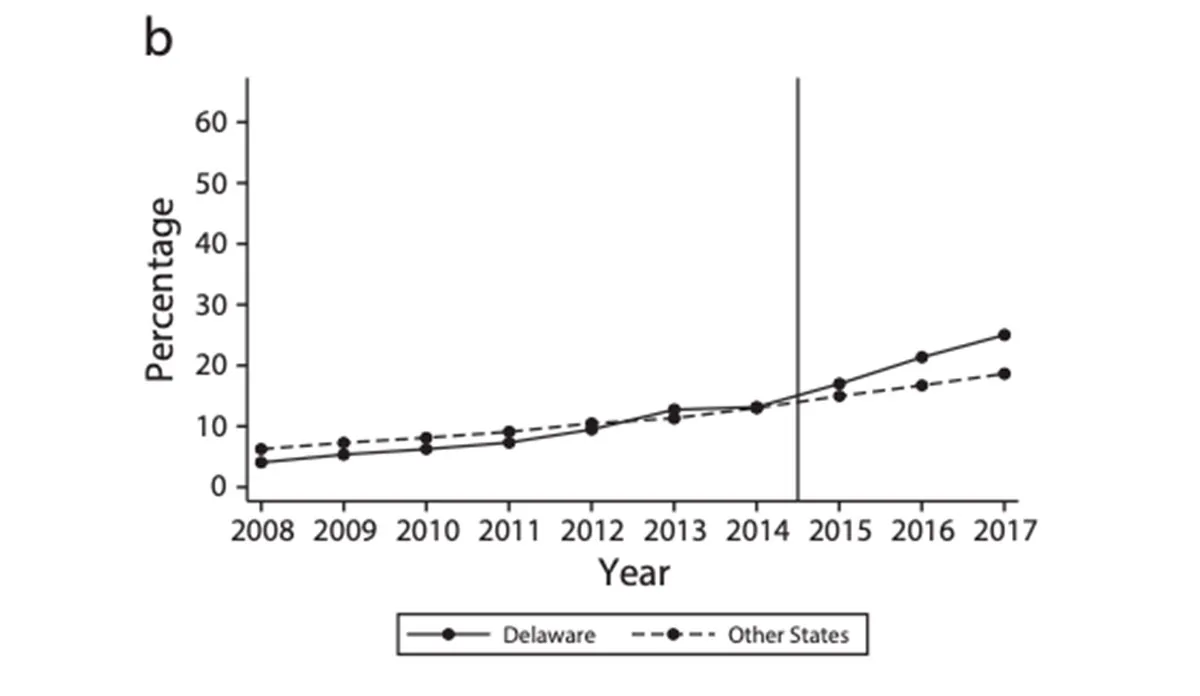Contraceptive Care
Changes in uptake of long-term reversible contraceptives were investigated before and after an access program was implemented in 2015.

Read Time: 2 minutes
Published:
In 2014, almost half of the pregnancies that occurred in the state of Delaware were unintended, making Delaware the state with the highest rate in the nation. This motivated the implementation of Delaware Contraceptive Access Now (DelCAN), a statewide initiative that aims to increase women’s access to long-acting contraceptives such as intrauterine devices and implants. These are considered the most effective contraceptive methods whose effects can be reversed. However, use of these devices has been historically low due to clinical barriers that include lack of expertise on insertion and removal and the need for providers to stock and store the devices, and patients have barriers including cost and the need to make multiple medical visits. Although the Affordable Care Act mandates that LARCs are covered without any out-of-pocket cost, many private and public insurances do not cover them.
DelCAN aims to eliminate some of these barriers by providing clinics and health centers with training and technical assistance to increase administrative and counselling capacity for offering long-acting contraceptives. DelCAN provides clinics with counseling training so that patients can pick the type of contraceptive that fits their needs, but at least have the opportunity to consider these effective options.
Michel Boudreaux and colleagues studied changes in uptake of long-term reversible contraceptives before and after the implementation of DelCAN in 2015 in Title X family planning clinics. They found that the implementation of DelCAN was associated with a 3.2% increase in use of long-acting reversible contraceptives in Delaware compared to other states. The graph shows that use of these types of contraceptives also increased more rapidly in Delaware, compared to other states after DelCAN went into effects.
Implementation of programs like DelCAN may result in more people accessing reversible, safe, and effective contraceptive options, and lowering the numbers of unintended pregnancies.
Databyte via Michel Boudreaux, Liyang Xie, Yoon Sun Choi, Dylan Habeeb Roby, and Michael S. Rendall, Changes to Contraceptive Method Use at Title X Clinics Following Delaware Contraceptive Access Now, 2008–2017, American Journal of Public Health, 2020.



